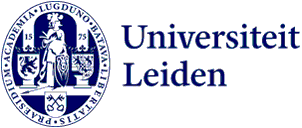
Who will pay for our energy transition?
The Dutch Development Bank's new SDG loan fund for green energy in the global south may not be as positive as it seems. Anthropology professor Marja Spierenburg raises concerns about its potential impact on local communities.
Global South's call for climate compensation
Ahead of the 28th Climate Summit in Dubai, the Dutch Development Bank (FMO) has launched a Sustainable Development Goals (SDG) loan fund. Low- and middle-income countries in the Global South have been calling for compensation for the damage caused to their environments and economies by climate change, to which they contributed far less than high-income countries in the Global North. After much resistance from high-income countries, including the US and the EU, finally, during the last Summit in Egypt in 2022, an agreement was reached to establish a Loss and Damage fund to assist developing countries in coping with climate change induced disasters. However, contributions to this fund have been slow to materialise as countries disagree on which countries qualify for compensation and which countries should pay. In addition, the climate summit in Egypt ended with little prospect of reducing the impact of the global North on climate change.
Investing in green energy in the Global South
The SDG loan fund aims to change this. It is a collaboration between FMO, the MacArthur Foundation and a large international insurance company. The fund enables private sector partners to invest a total of one billion euros in green energy projects, sustainable agriculture and small and medium-sized enterprises in low- and middle-income countries.
What will this green energy be used for?
The loan fund launched by FMO sounds like a positive development. Investing in green energy projects in the Global South to foster much-needed development without contributing to climate change sounds like a noble goal. But what will this green energy be used for? Will it enable poor citizens to finally access clean and affordable electricity, will it be used to power local schools and hospitals, or to develop local businesses and industries? A recent visit to South Africa by the King of the Netherlands and outgoing Prime Minister Mark Rutte unfortunately points in a different direction.
Local use or Northern Europe's energy transition?
According to Rutte, the Netherlands has the ambition to become the hub for the import of green hydrogen for the whole of Northern Europe. Together with Denmark, it initiated the SA-H2 fund in South Africa to finance green energy projects. But instead of providing green electricity to the local residents and economy, in a country that suffers daily blackouts due to failing infrastructure and where almost 25% of the population still has no access to electricity, the green energy will be used to produce hydrogen for the energy transition in Northern Europe.
The cost of the hydrogen revolution
Hydrogen production via water electrolysis requires both a lot of energy as well as water, which is quite problematic in a country still reeling from the effects of one of the worst droughts in history. The promise of income from hydrogen exports is tempting for a country that suffered badly during the recent Covid-19 crisis, when its tourism industry collapsed and it was forced to borrow money at much higher interest rates than European countries. The jobs created by the hydrogen factories are supposed to contribute to local development - but no questions are asked about what kind of jobs, for whom and under what conditions. Neither are questions asked about the impact of high energy and water demand on other local industries, businesses or alternative livelihoods.
And so Africa remains a continent for cheap resource extraction, with little regard for the fact that our fates are globally interlinked, and that continued exploitation and environmental degradation will have an impact on the issue that Dutch voters consider so important - migration.
Africa a hub for resource extraction
And so Africa remains a continent for cheap resource extraction, with little regard for the fact that our fates are globally interlinked, and that continued exploitation and environmental degradation will have an impact on the issue that Dutch voters consider so important - migration.
